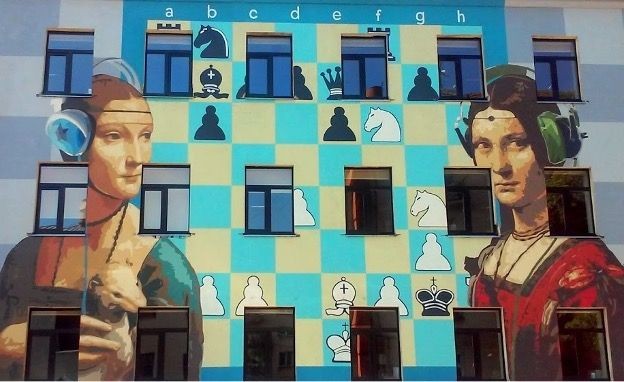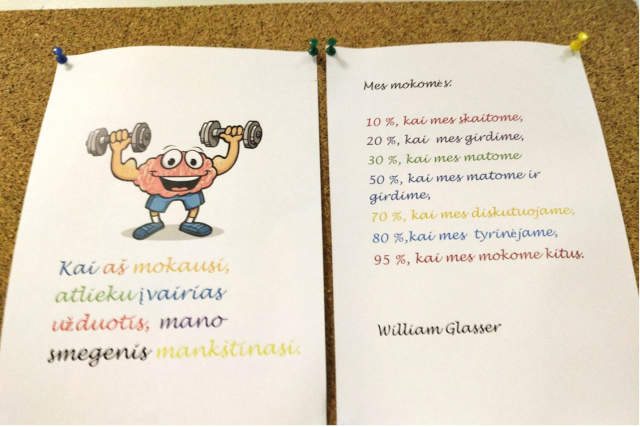The focus on social inclusion in YouCount
In Lithuania YouCount highlights the need to build social inclusion using citizen social science as a tool to mobilise young people to address social issues that are important for them and to create a sense of belonging to a community. In order to involve into the project a wider target group of the case study, we emphasised that the project aims not only to conduct research, but also to have a positive impact on society in general, and on the local community of Panevėžys district, in particular.
Panevėžys district is located in the centre of Lithuania and has a distinctive culture and beautiful nature. However, this district also has a quite high rate of emigration, including both internal and external emigration. In this situation, the questions of social belonging and connectedness to the place are very important ones. So far, the municipality of Panevėžys district has not been sufficiently analysed in terms of social inclusion and citizen science as a way of addressing social inclusion issues. Thus, the YouCount project tries to address this knowledge gap by involving young people in research activities.
In order to motivate the Lithuanian youth (17-29 year olds) to get involved in the YouCount project and accept the role of a young citizen scientist, various formats of meetings and events were initiated, organised and implemented in the course of the 2022. The project team established contacts with several gymnasiums in Panevėžys district (Raguva, Krekenava and Ramygala) to present the project and to involve young scientists into project activities. All these meetings created the space where young people were involved into different activities, such as watching videos about citizen science, focus group discussions on social inclusion and social exclusion, individual and collective creation of concept maps, open lectures and experience sharing workshops, pilot testing of the YouCount App with young people in Raguva and in other locations, and many others.
These collaborative activities provided an opportunity for students and teachers of Panevėžys District Gymnasiums to find out more about citizen science and its role in enhancing social inclusion. The young people were a bit shy at the beginning, but then got motivated to become citizen scientists and contribute to the mission of the project and investigate positive drivers of social inclusion.
"The data collected by YouCount shows that the attitudes of young people in, say, Raguva (Panevėžys district), towards the issues of social inclusion vary: there are those who agree that social exclusion, both in their district and in the wider societal context, is a growing problem in Lithuania, not only due to the effects of economic, but also socio-cultural factors, but also there is a number of young people who have a positive view of the inclusive environment in the district, and in the region, as well as their beliefs in the potential of the district to atract young people in the future".
Insights of Raguva youth on social inclusion and inclusive spaces for young people
During the meetings with researchers,the young people of Raguva Gymnasium (age group 17-18 years) deepened their knowledge not only about civil society, but also about citizen science; they were introduced to the scientific concepts of social inclusion and social exclusion; they were invited to discuss these concepts in an associative way; to identify, first, individually, and then in groups, the social problems of their neighbourhood, to share examples of good practices of social inclusion.
Young people also participated in focus group discussions, where they discussed and shared their insights using the methodology of visual concept maps developed in groups. They also identified the main spaces (both outdoor and indoor) in Raguva, where they feel safe, accepted, active and engaged. The importance of socially open spaces across the district was mentioned widely and frequently (young people spoke not only about their own town, but also about other neighbouring towns, as some of them travel to a particular gymnasium from the surrounding area, and this practice is common across the district).
Raguva, in their opinion, has a lot to be proud of, first of all, the high quality and very modern infrastructure of Raguva Gymnasium, the initiatives of the Raguva Cultural Centre, the socially open environment in the local communities, the sports and recreational opportunities and well-developed spaces for sports and cultural activities, the logistics and the transport system, and finally, the beautiful nature. The convenient and naturally rich environment of Raguva seems to motivate the young people in their own way, with ecological and sustainability ideas emerging in their speeches, possibly inspired by local cultural practices. When talking about the need for modernisation of Raguva and its surroundings, young people mentioned the ongoing reconstruction of the outdoor stadium and sports fields of the Raguva Gymnasium, and when discussing about the places in the town that they lacked or would like to have more of, they mentioned their expectations for additional spaces for discos, informal gatherings for young people, and evening dances.
"The project creates opportunities to meet many different people, reveals the rich and diverse potential of young people's thought, shows how they feel about the neighbourhood, their insights on positive drivers of social inclusion. And it is very important for us to hear and acknowledge Youth Voices".
The YouCount project opens a unique way to solve questions of social inclusion, social exclusion, youth empowerment, social belonging and connectedness. And the youth perspective in addressing all these questions is of the particular value.
This text was prepared by Audrone Pauliukeviciute and Egle Butkeviciene

